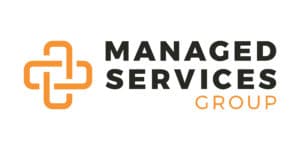As organizations in 2021 grew to incorporate more digital assets and deployments, the importance of maintaining proper compliance became a matter of great importance—especially when it came to doing business internationally.
With 2022’s report coming shortly, we wanted to remind everyone that the compliance space is constantly changing, even if there hasn’t been much to show for the way of change in recent years. Unfortunately, the epidemic is still going strong for many individuals and businesses, which means that many of the same difficulties and tendencies that existed two years ago still exist today.
Companies, for example, are still grappling with remote work environments and all of the issues it entails. However, there is more light at the end of the tunnel this year than last year at this time—a full report by the Federal Reserve is coming, but in the meantime, we can see a host of considerations and their applicable start dates here.
In areas such as reporting, device monitoring, and digital registrations, an experienced managed services team can assist your institution in remaining compliant. We have well-informed personnel who are conversant with the criteria—in other words, we know how to keep you above board. Our experts can answer your queries or examine your policies and processes to guarantee compliance. At the same time, our informal auditing can confirm that you are following the correct practices that will see your growth remaining unimpeded.
Does My Business Need To Consider Compliance?
While the upcoming report is complex on every front (from white-collar crime to environmental management) and cannot neatly be summarized in a short blog, we can safely say that keeping a finger on the pulse of international compliance is something that every organization should consider. For instance, global policy on cookies and other Web 2.0 tactics for marketing saw a massive shift in 2021, with all websites within US and EU domains now requiring some form of user consent to deploy marketing tools that were once commonplace. Understanding the areas where one may still market, advertise, or otherwise draw clicks and viewership was a project of compliance professionals and technical experts in web development.
The comfort and potential cost-savings of working with professionals with experience in growing and managing your systems are essential to consider. Where you understand your business’s growth capacity and scope, others are involved in the back-end support and reporting measures that can cost you in fines—up to and including the seizure of your business in egregious cases.
Again, most considerations will not apply to your business, but the report is helpful in understanding where the largest corporations are heading. The most advanced and technically-informed institutions are the ones spearheading, testing, and creating customer-facing applications through B2B innovation (think Google Actions or Facebook Insights/Analytics). So, it stands to reason that the directions these companies head in will significantly inform how business is conducted for SMBs in the coming years.
Upcoming Trends in Cyber-Risk
Below are five areas where Managed Services Group anticipates wholesale movements towards or away from safety practices—most of which follow from challenges brought on by the pandemic and increases in the number of remote and hybrid workplaces.
- Compliance in regards to financial crime will be increasingly modernized. AI and digital technologies are being used to revolutionize AML operations.
- Mitigating heightened cyber susceptibility from digital financial services. This will involve handling cybersecurity and fraud—two critical areas of managing digital transformation risk.
- Implementing or updating systems to serve numerous risk functions. These will span financial and operational risk to increase operational resilience and reduce critical downtime.
- Embracing next-generation technologies in the face of danger. In other words, increasing the use of digital technology to avoid the risks of poor compliance management.
- Sourcing new, more automated options for intractable risk problems. Collaboration with Regtech will become a commonplace practice to meet an increase in risk issues.
If this sounds jargony, don’t worry—we make sure you stay within the lines of cyber security compliance law as it applies to both cookies, marketing, and reporting.
It’s a lot to take in, isn’t it? That’s why it’s helpful to have the right strategy from the start. Contact our team and let us handle your software, hardware, policies, and strategy. Placing your I.T. in experienced hands means an industry-aware perspective when it comes to modernizing procedures, updating goals, or reporting your cyber risk profiles during any audits—both for federal and insurance purposes.









